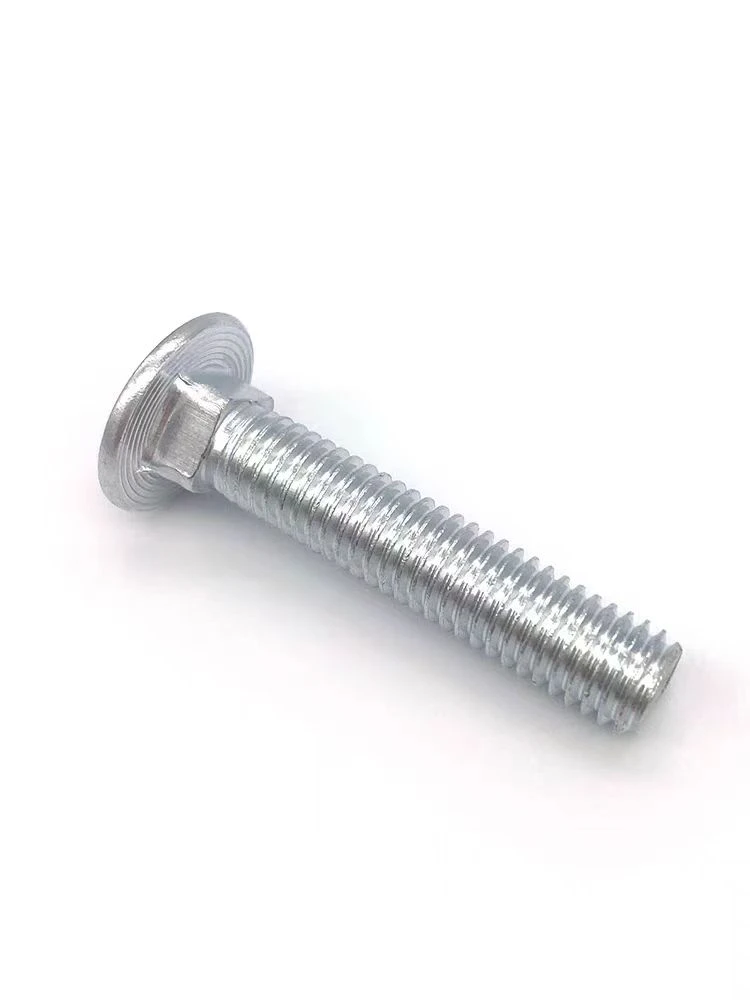

m12 shear bolts
Nov . 19, 2024 04:10 Back to list
m12 shear bolts
Understanding M12 Shear Bolts Applications and Benefits
M12 shear bolts are specialized fasteners designed for ensuring secure connections in various mechanical and structural applications. The designation M12 refers to the bolt's nominal diameter of 12 millimeters, which is a common size in industrial and construction settings. Shear bolts are engineered to withstand shear forces, making them ideal for applications where lateral loads are prevalent.
Composition and Design
Shear bolts are typically made from high-strength steel alloys, which provide enhanced load-bearing capabilities and resistance to deformation under stress. The design of an M12 shear bolt includes a smooth shaft and a defined head, allowing for precise torque application during installation. The bolt's threads are often partially cut to prevent it from being fully engaged, ensuring that the joint will shear off at a predetermined load. This characteristic is particularly useful in applications where controlled failure is necessary to prevent further damage to components.
Applications of M12 Shear Bolts
M12 shear bolts are widely used across various sectors, including automotive, aerospace, construction, and machinery manufacturing. In the automotive industry, these bolts are employed in critical assemblies such as suspension systems and chassis components, where they provide stability and safety. Their ability to shear at a specific failure point helps to absorb impact forces and protect the integrity of the vehicle's structure.
In construction, M12 shear bolts are frequently utilized in structural steel connections, especially in areas where significant lateral forces may occur. For example, in the assembly of steel frames, these bolts can be used to create joints that allow for a degree of movement while maintaining overall structural integrity. This flexibility is vital in earthquake-prone regions, where buildings must be designed to endure dynamic forces.
m12 shear bolts

Advantages of M12 Shear Bolts
One of the primary advantages of using M12 shear bolts is their ability to enhance safety in various applications. By allowing for controlled failure, designers and engineers can ensure that components do not experience catastrophic failures that could lead to accidents or injuries. Additionally, the use of shear bolts simplifies maintenance processes; in the event of a failure, replacing a shear bolt is often more straightforward than repairing or replacing an entire assembly.
Another benefit is the efficiency of installation. M12 shear bolts can typically be installed quickly and do not require extensive tooling or equipment, making them cost-effective choices for large-scale projects. Their uniform size and design also ensure compatibility with standard nut and washer configurations, reducing the complexity of inventory management in industrial settings.
Conclusion
In summary, M12 shear bolts play a crucial role in enhancing the safety and reliability of mechanical and structural applications. With their robust design and ability to withstand shear forces, these fasteners help to ensure the longevity and stability of various assemblies from automotive to construction. As industries continue to seek efficient and safe solutions for connection points, M12 shear bolts will remain integral in engineering practices, contributing to the advancement of secure and reliable infrastructure globally.
Whether you are an engineer, designer, or mechanic, understanding the significance and functionality of M12 shear bolts can greatly enhance your projects and lead to improved safety standards across applications.
Latest news
-
Hot Dip Galvanized Bolts-About LongZe|High Strength, Corrosion Resistance
NewsJul.30,2025
-
High-Strength Hot Dip Galvanized Bolts - Hebei Longze | Corrosion Resistance, Customization
NewsJul.30,2025
-
Hot Dip Galvanized Bolts-Hebei Longze|Corrosion Resistance&High Strength
NewsJul.30,2025
-
High-Strength Hot-Dip Galvanized Bolts-Hebei Longze|Corrosion Resistance&High Strength
NewsJul.30,2025
-
Hot Dip Galvanized Bolts-Hebei Longze|Corrosion Resistance&High Strength
NewsJul.30,2025
-
Hot Dip Galvanized Bolts - Hebei Longze | Corrosion Resistance, High Strength
NewsJul.30,2025

